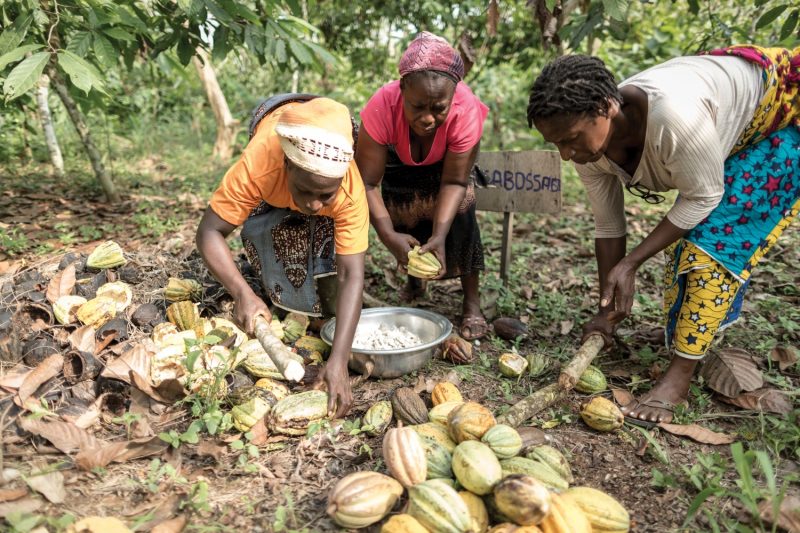Fairtrade urges EU to back living incomes in West African cocoa supply chains

Fairtrade - Cotes d'Ivoire Cacao
Fairtrade has urged the European Commission and governments across the continent to recognise living incomes in upcoming human rights due diligence regulation for the region’s chocolate and cocoa sector, reports Neill Barston.
The charitable organisation made the call amid concerning reports of a 25 percent cut in farm gate prices paid to farmers, set by the Ivorian government, for the next six months. This effectively wipes out the newly introduced Living Income Differential (LID) $400 per cocoa tonne commercial premium payments to support farmers in Ghana and Ivory Coast.
As the charity noted, the situation, which has seen cocoa prices tumble amid the ongoing coronavirus pandemic, has further trapped farmers in a cycle of poverty, with the vast majority of agricultural workers earning below UN poverty definition wages.
However, as Fairtrade stressed, its certified cocoa cooperatives will earn the Fairtrade Minimum Price for their Fairtrade sales during this period, since the government-set price has dipped below it.
As the charity noted, the LID, which was implemented in October 2020, was intended as a step toward a living income for cocoa farmers, recognising that low global cocoa prices have historically trapped farmers in poverty.
But despite much hope for the initiative, a backlog of unsold cocoa from the October 2020 to March 2021 period has been attributed to reduced demand due to the COVID-19 pandemic, with reports that some buyers (including Hershey) had reacted to the LID by reducing stocks or seeking out cheaper cocoa from other sources, which included buying crops on the New York Futures market.
According to Fairtrade International, a living income commitment by chocolate-consuming countries would complement the Ivorian government’s efforts to stabilise the price of cocoa for farmers.
“It’s not clear how much of the decline in price is due to the pandemic, and how much was due to some buyers reportedly seeking to avoid the LID. But what’s clear is that farmers lose out. While some buyers have explicitly supported the LID, it’s not clear if all are. The LID is a powerful intervention by the Ivorian government that seeks to provide stability and improvement to all farmers’ livelihoods, which we have supported from the beginning.
“There needs to be a level playing field, and the human rights due diligence legislation under discussion in the European Union and member states provides just such an opportunity. If the human right to a living income cannot be recognised, then how will all other human rights of cocoa farming families be met in a sustainable way?” said Jon Walker, Senior Advisor for Cocoa at Fairtrade International, who will be among keynote speakers at the upcoming virtual World Confectionery Conference, being held on 1 June.
The European Commission is holding a series of multi-stakeholder talks on sustainable cocoa to feed into relevant ongoing Commission initiatives, including on due diligence and deforestation. Human Rights Due Diligence proposals are expected in from the European Commission in 2021 alongside a proposal that may specifically name cocoa on reducing deforestation.
The Fairtrade Minimum Price of $2,400/tonne at FOB is now 13 percent more than the government price plus the LID, so producer organisations selling on Fairtrade terms will receive the difference of just over $318 per tonne.
They also earn the additional Fairtrade Premium of $240/tonne to invest in their businesses and communities. As with West African cocoa overall, most Fairtrade cocoa sales are made during the main harvest, not the mid-crop period starting in April.
Fairtrade has also set voluntary higher living income reference prices for cocoa from Côte d’Ivoire and Ghana, and is working with companies to improve livelihoods and sustainability within their supply chains.
“The price that cocoa farmers earn is not the only element necessary for their families to reach a living income, but it is an essential one. Whether the European Commission addresses living income by directly recognising price or indirectly through the incorporation of living income in human rights due diligence, the subject must be addressed,” said Walker.



